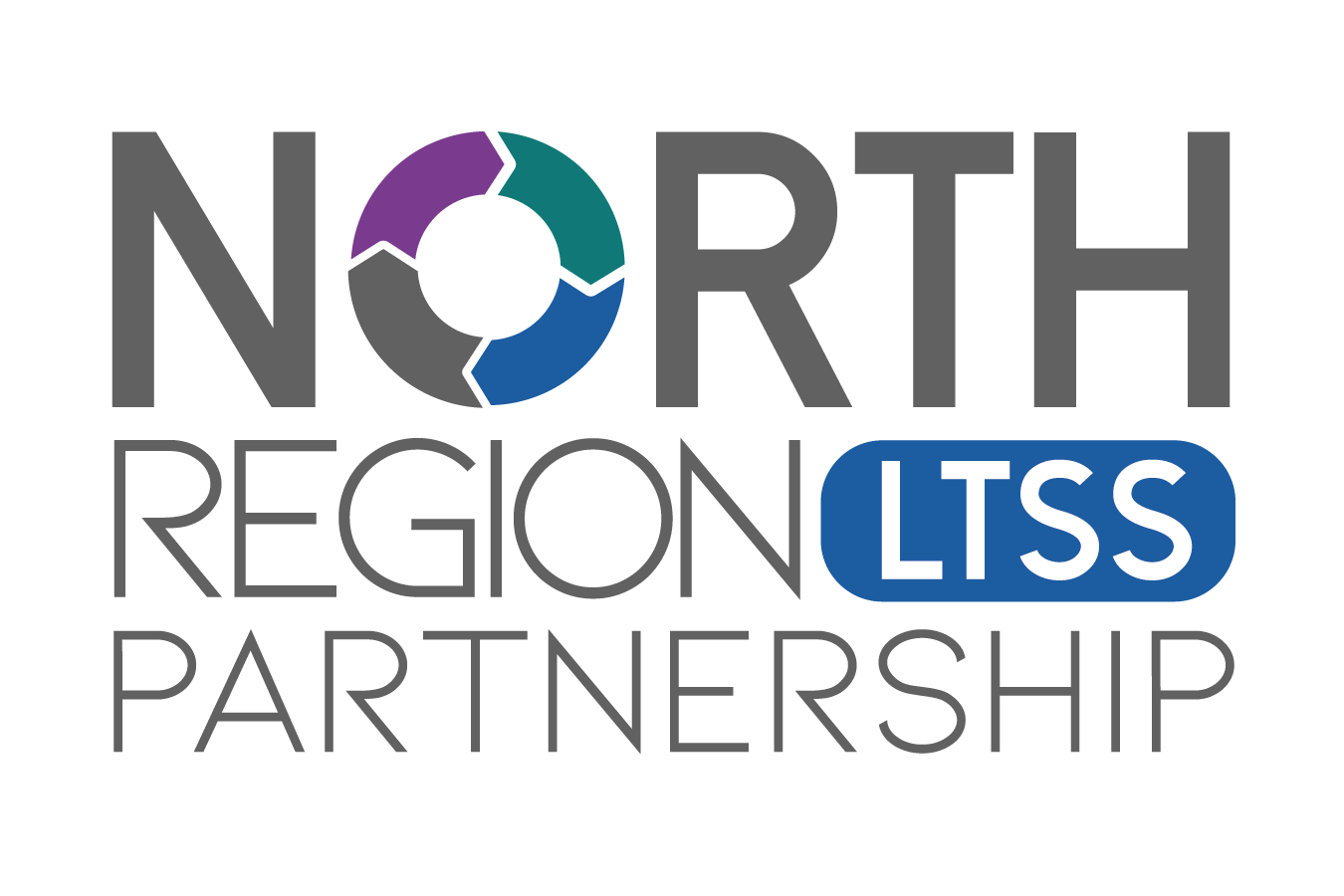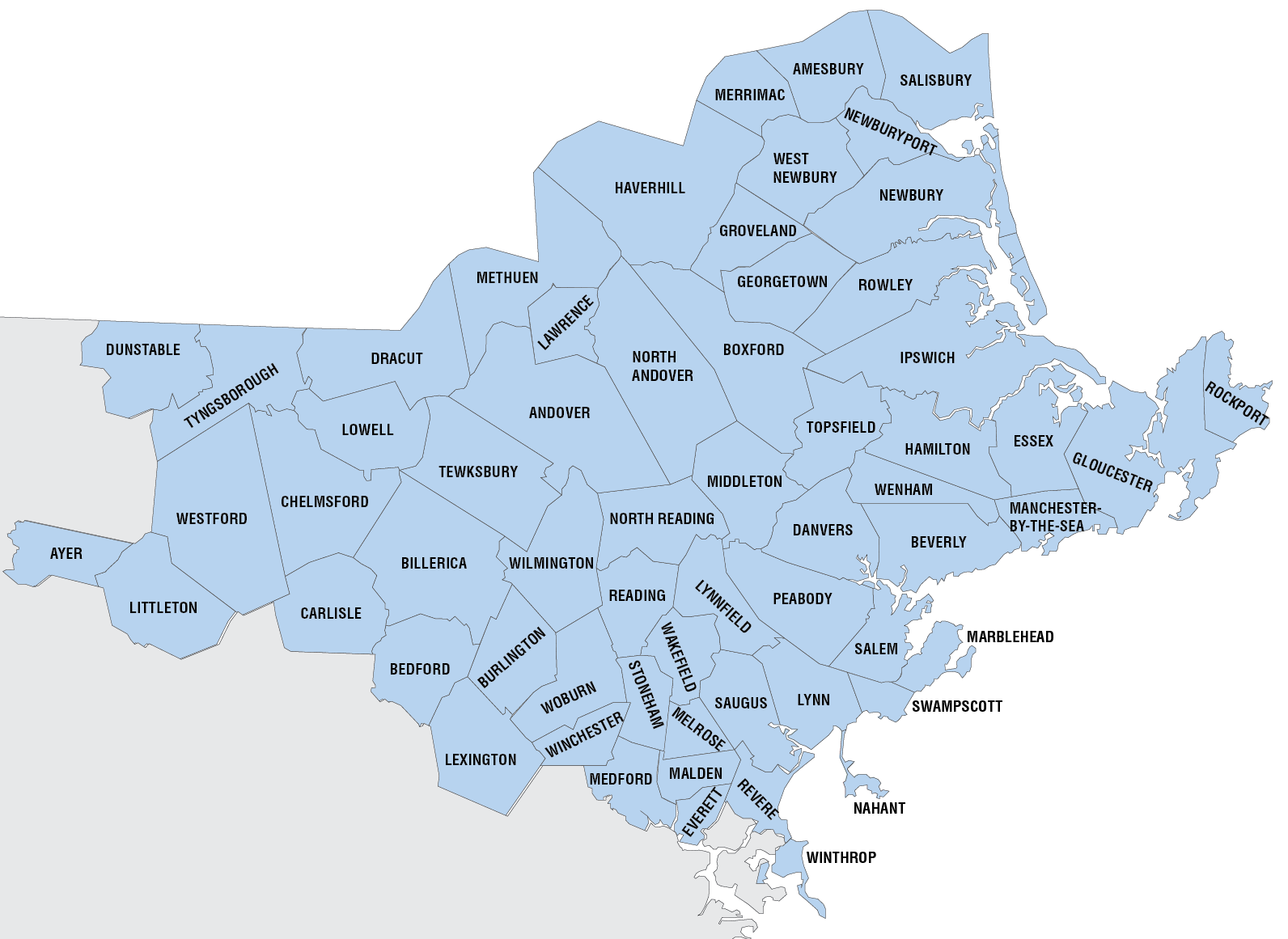







The North Region LTSS Partnership
A partnership among six of the region's most trusted and experienced human services agencies.

Serving People and Families across the North Shore and Merrimack Valley
Who We Are
The North Region LTSS Partnership (NRLP) is a Community Partner in the MassHealth Community Partners Program. We are formed by six of the region's most trusted and experienced human services agencies: Bridgewell, Disability Resource Center, Element Care, Greater Lynn Senior Services, Lynn Community Health Center, and Northeast Arc.
At the North Region LTSS Partnership, we coordinate care and access to the services and supports you need to stay healthy, feel well, and improve your quality of life. We also advocate on your behalf – helping you stay connected with clinical and community-based resources. We serve MassHealth members from age 3‒64 who are in MassHealth ACO or MCO health plans throughout the North Shore and Merrimack Valley.
What We Do
We work with you and your doctor to find the Long-Term Services and Supports (LTSS) you may want and need to stay healthy. We help you make problem solving and daily routines a bit easier.
This includes:
- Providing you with informed choices of LTSS programs and providers;
- Connecting you to social services;
- Developing an LTSS Care Plan;
- Supporting you in between care;
- Participating on your Care Team.
What are Long-Term Services and Supports (LTSS)?
These are supports and services that help you manage your daily routines, stay healthy, and assist you with various tasks – like help with meals, bathing, laundry, shopping, and more. Your Care Coordinator will help you address the issues that may be preventing you or your family from living a healthier lifestyle. Such as:
- Help for organizing your daily routines, including reminders for important appointments;
- Finding housing, transportation, and affordable food. Some legal issues, finding and keeping a job, finding and completing training or education;
- General coaching, training, and education that support your goals.
Whatever you need to keep you healthy, we try to provide! Plus referrals for direct services like:
- Help with household tasks like cooking, laundry, or shopping;
- Help with daily activities such as personal care, managing medications, bathing or dressing;
- Getting equipment like a wheelchair, cane, or walker; or devices that help you communicate better.
Younger than age 65
and older than 3
Could this be you or your family?
with chronic health conditions
or disabilities
living in the community
We meet you where you are,
and move forward together!
Bridgewell strengthens communities by providing an unmatched range of social and human services that empower people with disabilities and other life challenges to live safe, self-directed and productive lives. We serve approximately 6,300 people and their families. Bridgewell is accredited by the Commission on the Accreditation of Rehabilitation Facilities (CARF) and fully licensed by the state.
The Disability Resource Center (DRC) is a service and advocacy center run by and for people living with disabilities. The DRC supports people of all ages who have any type of disability to live independently and participate fully in community life.
Element Care PACE (Program for All Inclusive Care for the Elderly) is a non-profit healthcare organization with a simple mission: to help older adults live safely and comfortably in their homes and communities for as long as they can, keeping their stays in hospitals and nursing facilities as minimal as possible.
GLSS is a non-profit organization dedicated to building healthy and more livable communities, where critical home and community-based services and supports are fully accessible to older adults, people living with disabilities, and their caregivers. GLSS serves more than 4,000 people every day.
Lynn Community Health Center is a non-profit, multicultural, community health center. Located in the heart of our community, we are at the center of a larger solution to the healthcare crisis that is facing our nation today. We are recognized as a leader in developing new initiatives that result in high-impact, low cost health care.
Northeast Arc (NeArc) changes lives for people with disabilities — and children at risk of developing them — and their families. We are committed to ensuring inclusion and opportunity for people of all abilities at home, at school or work, and in the community. The agency serves more than 9,000 people in 190 Massachusetts cities and towns each year.
